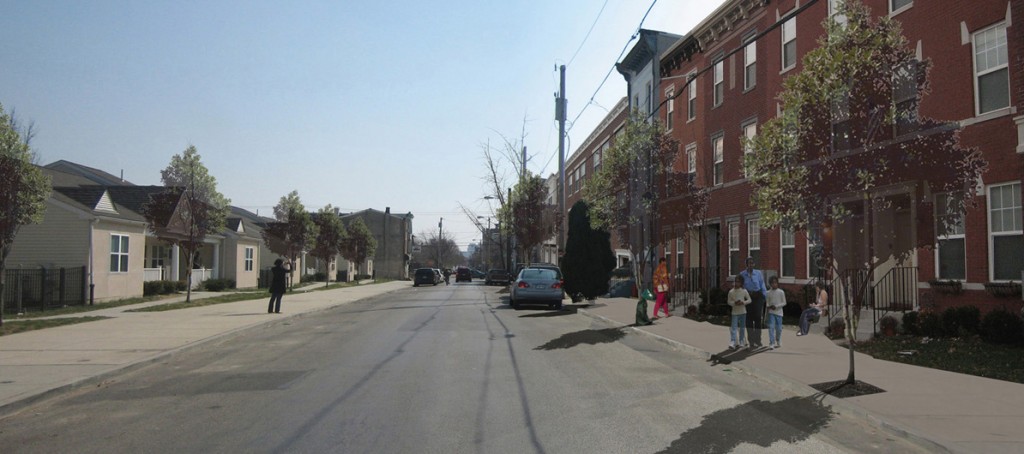THE PROBLEM
- Philadelphia has 40,000 vacant lots and buildings – and the number is growing every year.
- This blight attracts crime and makes it tougher to build healthy communities.
- The biggest blighted property owner is the city government itself!
THE COSTS
- These properties reduce our city’s wealth by $3.6 billion– that’s $8,000 for each and every family!
- Vacant land and buildings cost our city and schools $70 million – and counting – in lost taxes.
- Vacant land requires $20 million of our tax dollars every year just for safety and upkeep.
WE HAVE A SOLUTION
Three years ago, our coalition set out to end our vacant land problem by bringing a Land Bank to the City of Philadelphia. In January 2014, the Land Bank bill was signed into law with our priorities in tact: it creates a fair, transparent and accountable Land Bank for the City of Philadelphia:
- Fair: The land bank must turn over vacant lots and buildings to people and organizations that want to create affordable and accessible housing, businesses that create jobs for residents, and spaces for community food productions
- Transparent: The Land Bank must provide notice of who gets land, for what price, and for what use.
- Accountable: The Land Bank board must have at least four community representatives.
WHAT MORE NEEDS TO BE DONE
- Now that Philadelphia has a Land Bank We Can Trust, we need to make sure that legislation turns into the Land Bank we worked so hard to create by keeping it accountable to communities. Click here to get involved.
WHY A LAND BANK?
A Land Bank is a public entity that converts vacant, abandoned, and tax delinquent properties into productive use, allowing communities to reclaim, reinvest in and rebuild their neighborhoods. A Philadelphia Land Bank will:
- Get Us Land We Can’t Get Now – Right now the city can choose to sell its land to the highest bidder. But if it put that land in a Land Bank, the Land Bank could decide to sell it, or give it away, based on what the buyer wants to do with it. It would allow residents and neighborhoods who are most directly affected by new real estate development help determine their community’s path for growth and development.
- Protect Us for the Long Haul - A Land Bank is insulated from political changes while mayors and city council members come and go.
- Give Us a Say in the Decisions – The Land Bank would be governed by a Board of Directors. State law says the board must include at least one resident and one member of a community group, and we have successfully advocated for even more seats on the board.
- Have the Money to Get Things Done – The Land Bank can issue bonds allowing it to raise money to clean blighted properties, and even to buy privately-owned blighted land for larger projects.
OUR LONG-TERM GOAL: COMMUNITY LAND TRUSTS IN PHILADELPHIA
We believe that in order to be successful, a land bank needs to partner with strong community organizations. That is why we are also working to support the creation of neighborhood-based community land trusts in Philadelphia. More than 200 communities across the country have land trusts, including neighborhoods in Chicago, Washington DC, San Francisco and Boston. These land trusts have helped create more than 10,000 affordable homes; they also hold land for community centers, gardens and local businesses. Land trusts, which would receive land from a Philadelphia Land Bank, would help Philadelphia neighborhoods by offering:
- Permanent Affordability – When the housing market gets hot and prices go up, land trusts maintain a supply of affordable housing. And because the land is owned by a community organization, it won’t be sold for projects that create nuisances or price people out of neighborhoods.
- Local Decision-Making – Land trusts allow a wide variety of people from the community – residents, business owners, community groups – to have a role in making decisions about how the land will be used. Communities decide whether land should be used for housing, parks, businesses or other priorities.
- Help for Homeowners, Renters and Local Businesses – Because it owns the land, a land trust can offer lower prices for people struggling to buy a home or find affordable rentals, and for businesses and community services that need a place to locate.

